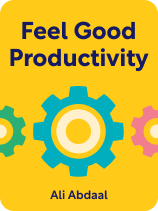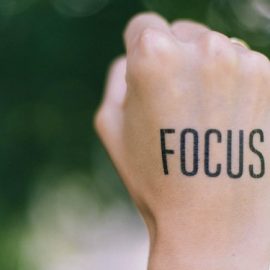

This article is an excerpt from the Shortform book guide to "Feel-Good Productivity" by Ali Abdaal. Shortform has the world's best summaries and analyses of books you should be reading.
Like this article? Sign up for a free trial here.
What causes procrastination? Do you know how to deal with procrastination?
Ali Abdaal says three things harm your emotional well-being and your productivity. You can stop procrastinating simply by figuring out which of the three is getting in your way and removing it.
Discover more about Abdaal’s three causes of procrastination: confusion, habit, and anxiety.
Procrastination Cause #1: Confusion
What causes procrastination? Abdaal’s first cause of procrastination, confusion, is the most straightforward. This simply means that you procrastinate when you aren’t sure what to do—or, more often, you aren’t sure how to do it. Thankfully, the solution for how to deal with procrastination caused by confusion is equally straightforward: Usually a few simple questions will clear up any confusion so that you can proceed confidently.
First of all, if necessary, ask some clarifying questions about what you’re supposed to do. What exactly is this task? What, specifically, are you trying to accomplish?
With that said, the more common cause of confusion is how to approach that task. Abdaal’s solution is not to simply ask how a task should be done, but rather to ask why you’re doing it. Knowing the larger goal behind a task will often help you figure out the best way to approach it. In other words, the answer to why will lead to the how.
For instance, if your task is to get a sales report ready, it would be helpful to know whether you’re preparing it for someone else in the company—someone who already knows the company’s procedures, expectations, and jargon—or for someone external like a potential investor, who will need some background information. As with everything we discuss in this guide, the principle is equally applicable to personal tasks. Say your current task is to clean your house; are you doing that just to make your home more pleasant for yourself, or because you’re hosting a party and therefore you need the entire house to be spotless?
Finally, Abdaal says that if you don’t clarify when to do something, you’ll put it off until the last minute (if there’s a deadline) or won’t do it at all (if there’s no deadline). For example, if you have a report due at the end of the work week and you don’t give yourself a specific time to do it, you’ll find yourself scrambling to finish that report on Friday. To give another example, if you’re planning to call a family member but don’t set aside time to do so, you’ll find that you never get around to making that call.
Procrastination Cause #2: Habit
Abdaal says that, while confusion is the most straightforward cause of procrastination, habit is the most common. In short, once you get into the habit of doing nothing, you’ll tend to keep doing nothing.
However, habit works both ways; once you start getting things done, you’ll tend to keep getting things done. Therefore, Abdaal’s solution is to start with something small. Pick a task that will be quick and easy, and do it as soon as possible. For example, if you want to start exercising, you might get started by doing a few pushups or going for a short walk.
It may not seem significant, but accomplishing that simple task will start breaking you out of your bad habit of procrastinating.
Procrastination Cause #3: Anxiety
Abdaal says that the third cause of procrastination is anxiety. People tend to put off doing things—even things they want to do—when they’re worried about what the outcome might be. For example, people are often hesitant about starting a new hobby because they’re worried about looking foolish in front of more experienced hobbyists.
Abdaal adds that there’s no way to completely get rid of your anxiety, but there are a few things you can do to help yourself work through it.
The first step is to identify your anxiety: What, specifically, are you afraid is going to happen? To continue the above example, someone who’s new to a hobby might be anxious about other people making fun of their lack of knowledge or skill.
The second step, says Abdaal, is to assess your anxiety. This means asking yourself whether your anxiety is a reasonable response to something that’s probably not that big of a deal. Abdaal suggests considering, if the thing you’re worried about does happen, how bad will it really be? If someone does make fun of that new hobbyist, will it still matter the next day, the next month, or the next year? If something won’t matter in the long run, then it’s not worth worrying about.
Abdaal says that once you’ve finished those two steps, all that remains is to face your anxiety. With a clear idea of what you’re concerned about, and how reasonable that concern really is, you’re as prepared as you can be to get started.

———End of Preview———
Like what you just read? Read the rest of the world's best book summary and analysis of Ali Abdaal's "Feel-Good Productivity" at Shortform.
Here's what you'll find in our full Feel-Good Productivity summary:
- How to stop procrastination at its source and avoid or recover from burnout
- The crucial link between emotional health and productivity
- How to work in ways that feel energizing instead of draining






